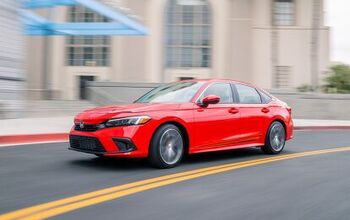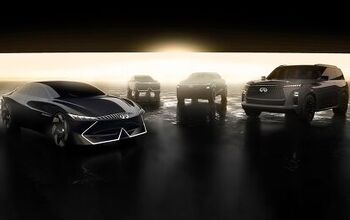Toyota Banks on Hydrogen - Not EV - For Future Power

Toyota officials insisted Wednesday that its hydrogen-powered cars, such as the Mirai, will comprise up to 30,000 sales by 2020, and will help the automaker eventually reduce emissions from cars it produces by 90 percent by 2050.
The Associated Press ( via Detroit News) reported that the automaker said it would work with investors and governments to deliver on its promise of producing only a small number of gasoline-powered cars for small countries in 35 years.
“You may think 35 years is a long time. But for an automaker to envision all combustion engines as gone is pretty extraordinary,” Senior Managing Officer Kiyotaka Ise said, according to the AP.
Toyota said that batteries still take too long to charge, despite advancements by other automakers. Carmakers such as Nissan, Volkswagen and others have said that electric vehicles — not hydrogen — may be a better bet for future cars, despite Toyota’s reservations.
Toyota, alongside other Japanese manufacturers including Honda and Nissan, recently announced a jointly developed project to subsidize hydrogen stations in Japan up to $89,000 per year.
Last year, Toyota sold 1,500 hydrogen-powered Mirais in Japan. The automaker began taking reservations for the Mirai in California — the only state where it will be sold — in July.

More by Aaron Cole


































Comments
Join the conversation
Toyota has a much longer horizon. They want to be an early entrant and key player into what may be a future market. Now that they are strong they are positioning themselves in all the right ways to keep selling the next iteration of renewables-powered vehicles. There is no final technology yet, but if there is ever going to be one it won't come from sitting on the sidelines waiting for it to appear. (Compare and contrast with VW who shunned electric motors in favor of diesel). They are acting exactly the way any smart company would as they are poised to thrive in the future. Emissions are the Achilles heel of ICE and will become an even bigger challenge in the future. FCEVs are a huge risk now, but if they wait until it becomes less risky they won't have first dibs on the market. Think back to when they went hybrid. It was a huge risk but they took it and reaped expertise, steady increase in market share, and easier CAFE standards compliance (this last one is huge for anyone who assumes the future of emissions standards is predictable). I wouldn't discount their strategy as misplaced. They have done it before exceptionally well. They have the playbook. Any company that wants to have a future (ahem, VW) should shadow them and copy them and differentiate on styling, offerings, etc. And by the way, I personally don't like Toyotas that much.
The Question Nobody Asked: Can I get that sexy marvel with a plain old ICE so I can drive it immediately and anywhere?!
As there will never ever be a Toyota in my or families driveway this is a non issue.
I saw that car at the Megaweb and I was really wondering what they were thinking, uh electrolysis? Making the fuel vs electricity seems dumb.